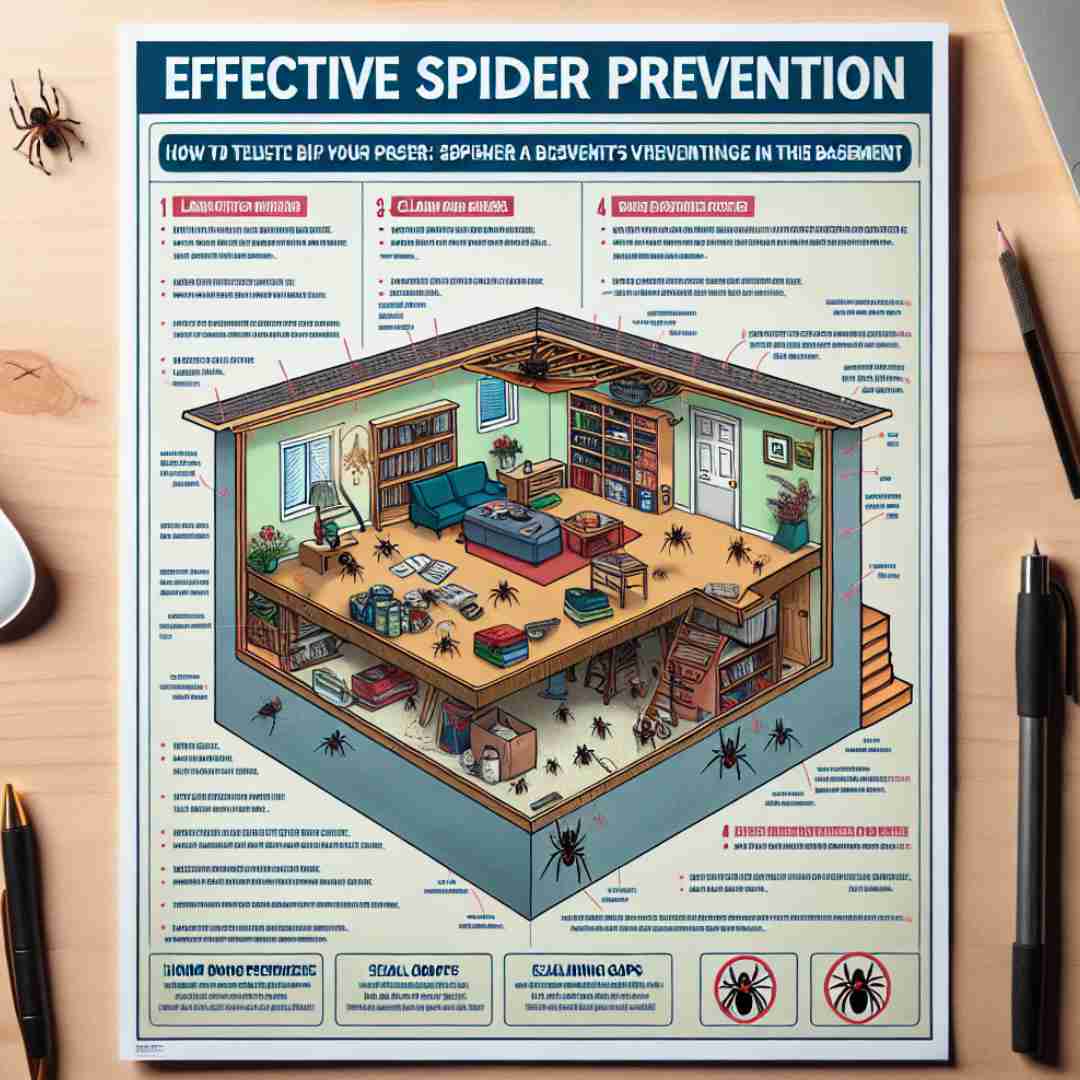Do you dread going downstairs because of creepy crawlies lurking in the corners? You’re not alone. Many homeowners face the challenge of keeping spiders at bay, especially in basements. These eight-legged guests can be unsettling and, in some cases, harmful. But fear not! This blog post will guide you through practical strategies to rid your basement of spiders, ensuring a comfortable and safe space in your home.
Whether you’re a DIY enthusiast, a pest control pro, or a concerned homeowner, this guide offers practical solutions to tackle your spider problem. From understanding why spiders invade basements to step-by-step prevention tips, we’ve got you covered. Stick around, and you’ll soon be enjoying a spider-free basement.
Understanding the Spider Invasion
Why Spiders Love Basements
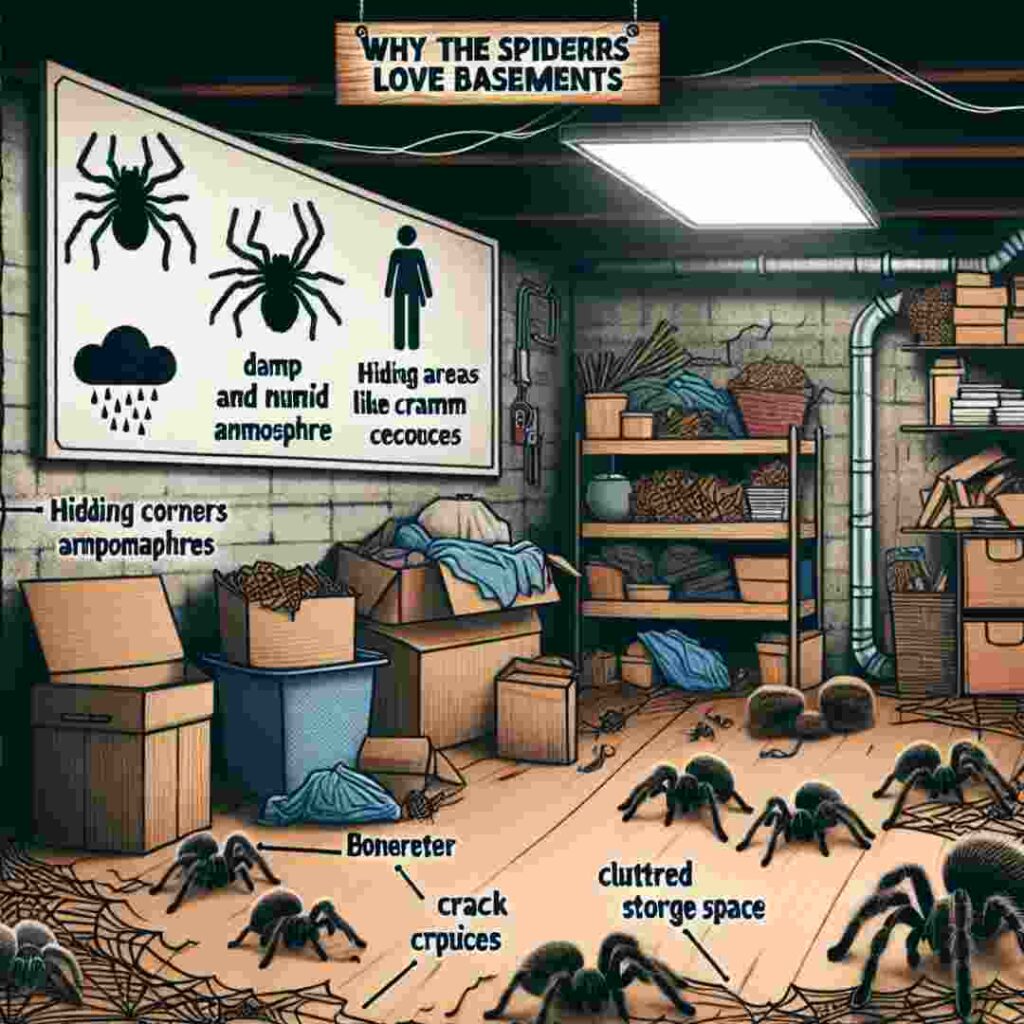
Spiders are drawn to basements for their excellent, dark, damp environment, which closely mimics their natural habitat. Basements often provide an abundance of hiding spots, like cracks, crevices, and cluttered storage areas, making them an ideal haven for spiders. Additionally, basements typically have fewer disturbances from humans, allowing spiders to thrive undisturbed.
The Types of Spiders Commonly Found in Basements
Not all spiders are created equal, and understanding the species hiding in your basement can help you tailor your approach to eliminating them. Common basement-dwelling spiders include cellar and house spiders and the occasional brown recluse or black widow. While most spiders are harmless, some can pose health risks, making identification crucial.
The Role of Food and Shelter
Spiders are natural predators, and their presence often indicates an underlying insect problem. Basements can harbor pests like ants, flies, and beetles, providing a ready food source for spiders. Addressing the availability of food and shelter is critical to reducing spider numbers and preventing future invasions.
Preparing Your Basement for Battle
Declutter and Clean
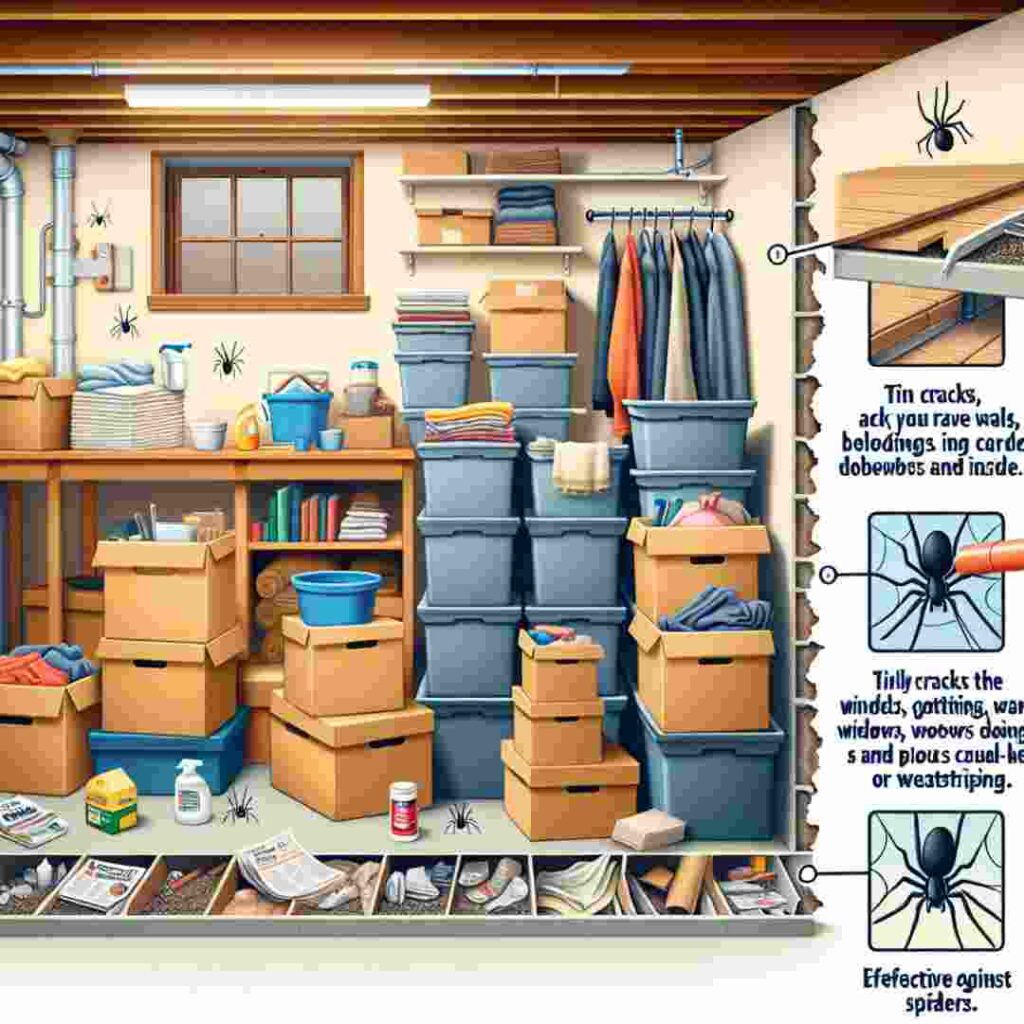
Clearing clutter is the first step to creating a less inviting environment for spiders. Cardboard boxes, piles of clothing, and stacks of old newspapers are perfect hiding spots for these arachnids. Organize your belongings using plastic storage bins, and regularly clean your basement to keep it free of dust and cobwebs.
Seal Cracks and Crevices
Spiders often enter basements through tiny openings. Inspect your basement for cracks in the walls, gaps around windows and doors, and spaces around pipes. Use caulk or weatherstripping to seal these entry points, effectively reducing the chances of spiders sneaking in.
Control Humidity Levels
Spiders thrive in humid environments, so keeping your basement dry is crucial. A dehumidifier can maintain optimal humidity levels and improve air circulation by opening vents or installing fans. Address any leaks or drainage issues to prevent moisture buildup that attracts spiders.
Natural Remedies to Repel Spiders
Essential Oils as Spider Deterrents
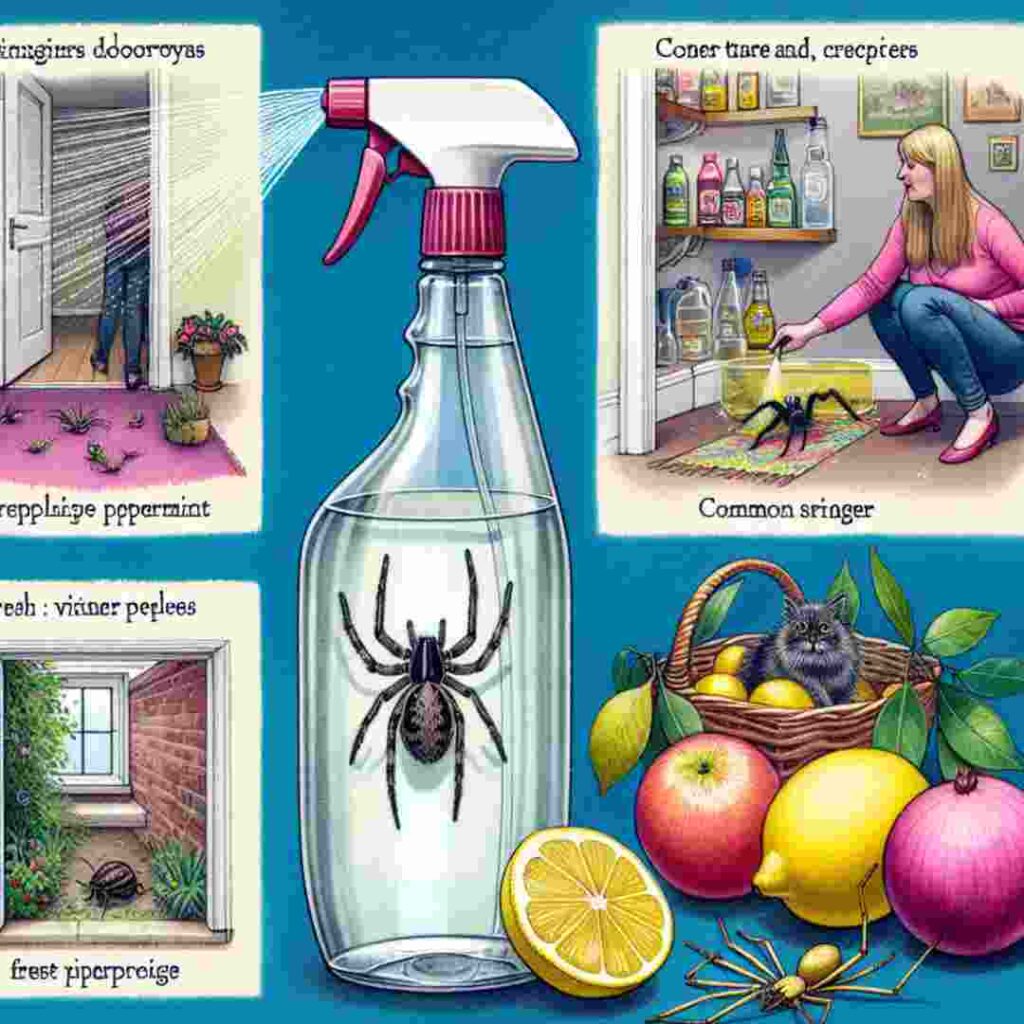
Many homeowners prefer using natural alternatives to pesticides. Essential oils, such as peppermint, tea tree, and lavender, are known for their spider-repelling properties. Create a simple spray by mixing a few drops of oil with water and misting it around potential spider entry points and hiding spots.
Vinegar Solutions
Vinegar is another effective natural spider repellent. Its pungent odor and acetic acid content deter spiders from camping in your basement. Mix equal vinegar and water in a spray bottle and apply it to spider-prone areas. The smell may initially be firm but will dissipate over time while keeping spiders at bay.
Citrus Peels as Barriers
Did you know that citrus fruits can repel spiders? Spiders dislike the scent of citrus, making lemon or orange peels a simple solution. Place fresh peels near windowsills, doorways, and other entry points to create a natural barrier against spiders.
Harnessing Technology for Spider Control
Using Ultrasonic Pest Repellers
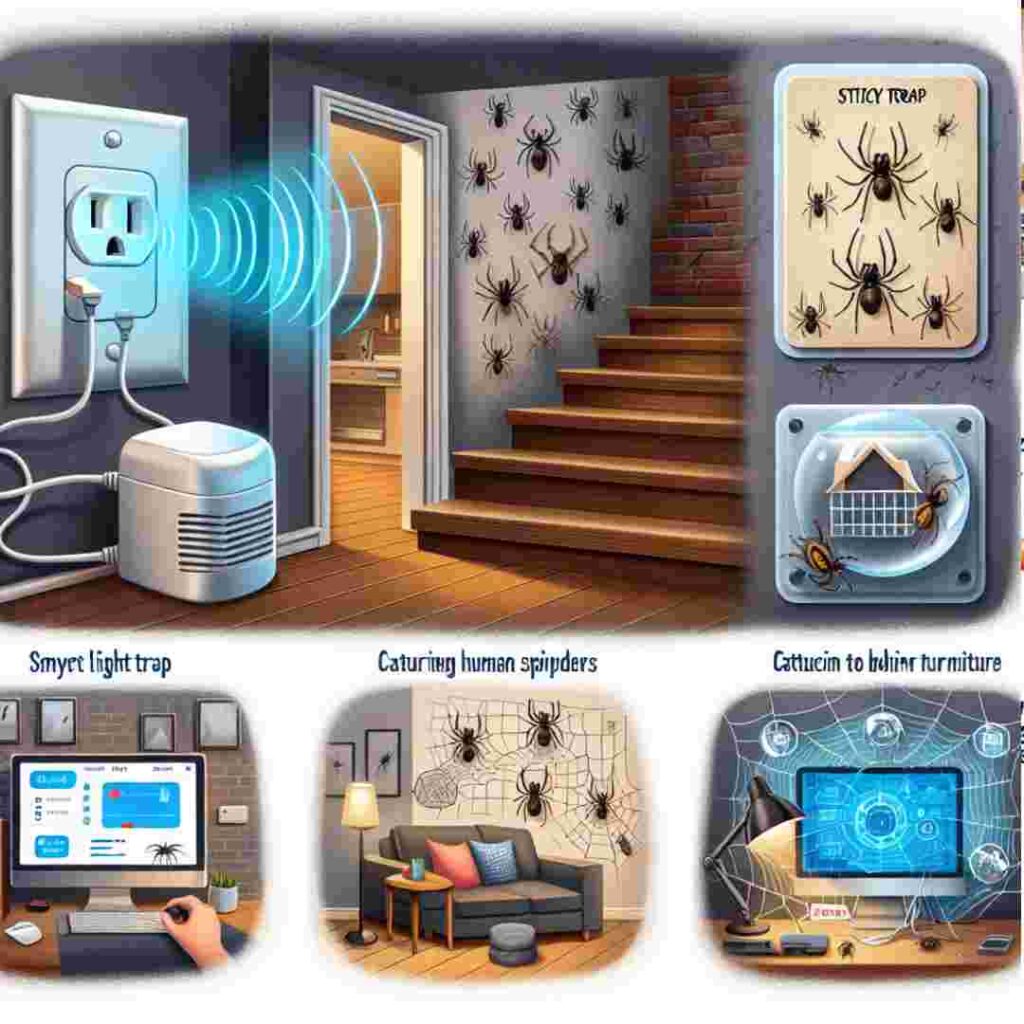
Ultrasonic pest repellers emit high-frequency sound waves that are believed to deter spiders and other pests. These devices are easy to use—plug them into an electrical outlet in your basement. Though results may vary, many homeowners report a decrease in spider activity.
The Benefits of Sticky Traps
Sticky traps are an excellent way to monitor and reduce spider populations. Place these traps in areas frequented by spiders, such as dark corners and behind furniture. While they won’t eliminate all spiders, they can help track the extent of your infestation and capture some invaders.
Smart Home Solutions
For tech-savvy homeowners, integrating smart home solutions can enhance spider control efforts. Intelligent lighting systems can simulate human activity, deterring spiders from making themselves at home. Additionally, smart sensors can alert you to changes in humidity and temperature that may attract spiders.
When to Call in the Professionals
Signs of a Severe Infestation
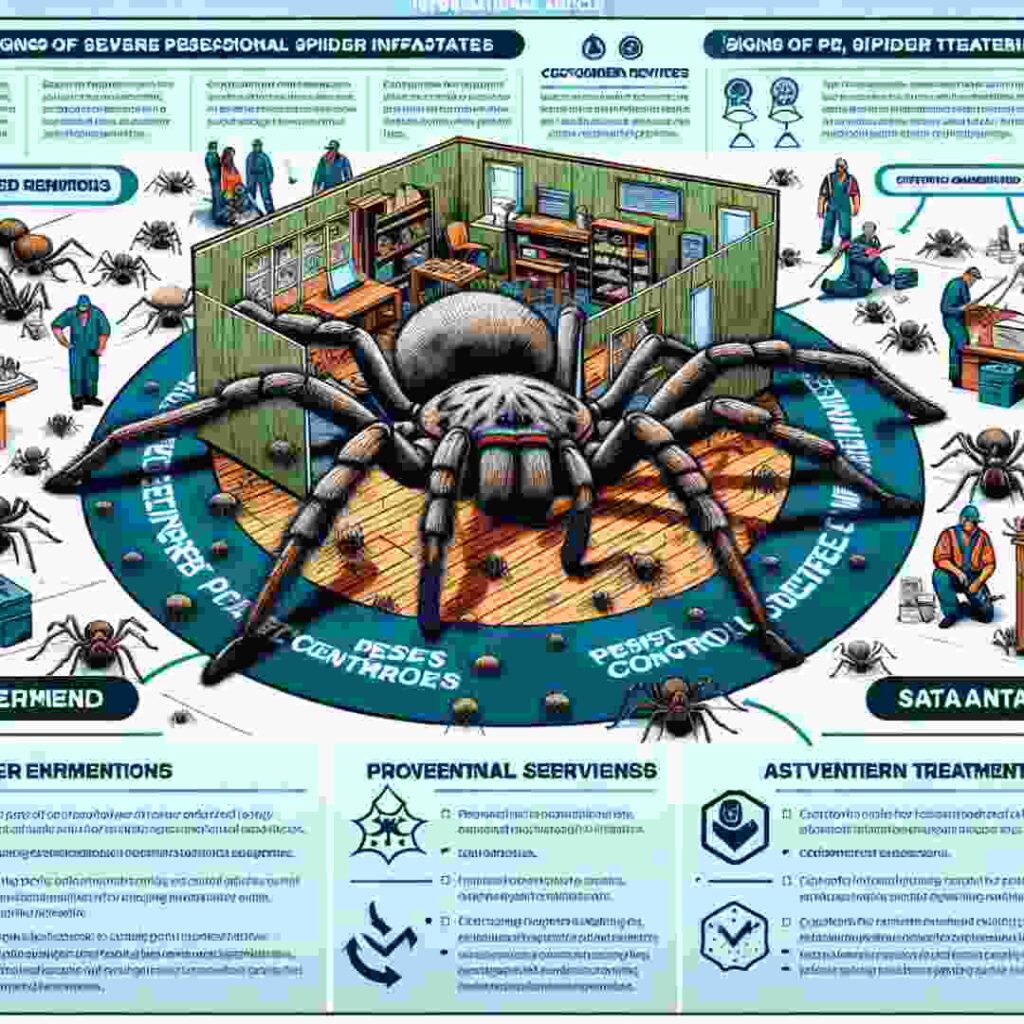
While DIY methods can be effective, there are times when professional intervention is necessary. If you notice an overwhelming number of spiders, frequent sightings of venomous species, or worsening conditions despite your efforts, it’s time to call a pest control expert.
What to Expect from Professional Services
Professional pest control services offer a comprehensive approach to spider elimination. A trained technician will assess the situation, identify spider species, and implement targeted treatments. They may also advise on long-term prevention strategies to keep your basement spider-free.
Choosing the Right Pest Control Company
When selecting a pest control company, consider reputation, experience, and customer reviews. Look for a provider that uses environmentally friendly methods and guarantees satisfaction. A reliable company will work with you to develop a customized plan that meets your needs.
Maintaining a Spider-Free Basement
Regular Inspections and Maintenance
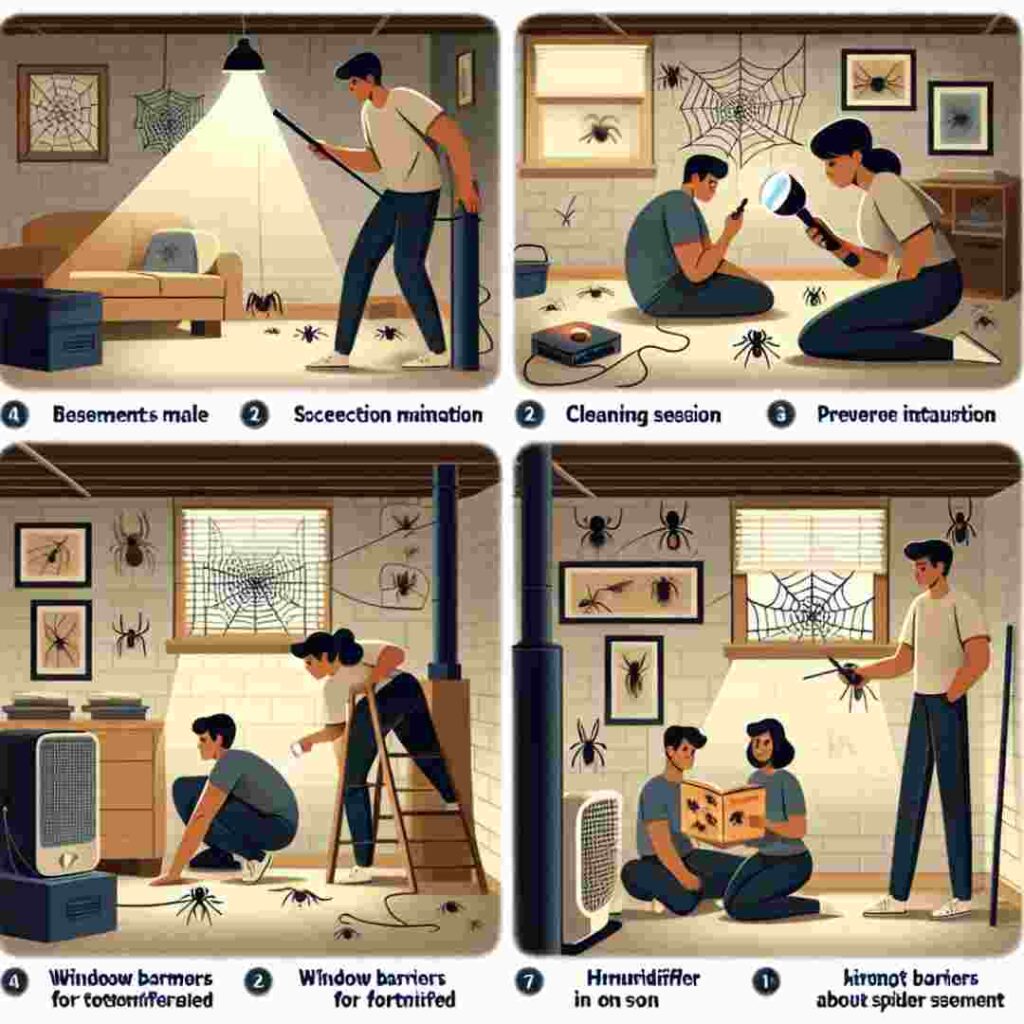
Keeping spiders at bay requires ongoing effort. Schedule regular inspections to check for new entry points and signs of infestation. Maintain a consistent cleaning routine to remove cobwebs and discourage spiders from returning.
Seasonal Adjustments
Spiders may seek refuge indoors during certain seasons, such as fall and winter. Adjust your prevention methods accordingly by reinforcing barriers, increasing dehumidification efforts, and doubling on natural repellents during these peak times.
Educating Family Members
Involving your family in spider prevention efforts can make a big difference. Teach family members to recognize common spider species and encourage them to report sightings promptly. By working together, you can maintain a comfortable and safe home environment.
Frequently Asked Questions
How can I identify venomous spiders in my basement?
Identifying venomous spiders requires some knowledge of their key characteristics. Look for distinct markings and body shapes commonly found in species like the black widow (shiny black body with a red hourglass on its abdomen) or the brown recluse (brown body with a violin-shaped mark on its back). If you need more clarification, use online resources for reference or consult a pest control expert to identify spider species accurately.
Are essential oils safe to use around pets?
While essential oils offer a natural way to repel spiders, using them cautiously around pets is vital. Some essential oils can be toxic to animals. Research which oils are pet-safe and consult your veterinarian for specific guidance. Consider using citrus peels or ultrasonic pest repellers as alternative strategies that may be safer for your furry friends.
How often should I replace sticky traps?
Sticky traps should be monitored regularly and replaced at least once a month or when they become full. Their effectiveness relies on their intact adhesive surface, so changing them frequently ensures they’re always ready to catch spiders. Regularly check the traps to assess the level of spider activity and adjust your prevention strategies accordingly.
What are moisture alarms, and how can they help with spider control?
Moisture alarms are devices that alert you to high levels of humidity or leaks in your basement. By providing timely notifications, these alarms help you address moisture issues that may attract spiders. Keeping your basement dry is crucial for preventing spider infestations, and moisture alarms can play an integral role in maintaining an inhospitable environment for these pests.
Can professional pest control eliminate spiders?
Professional pest control can significantly reduce spider populations, but complete elimination is difficult due to spiders’ ability to enter from outside sources. Even with professional services, continuous efforts like sealing entry points, maintaining cleanliness, and monitoring spider activity are essential for keeping spiders at bay. Professional treatments can significantly assist in managing severe infestations and setting preventive measures.
Conclusion
A spider-free basement is within your reach, and with the right strategies, you can create a safe and inviting space. From decluttering and sealing entry points to utilizing natural remedies and technology, you have the tools to tackle your spider problem head-on. Remember, consistency is critical, and by following the tips outlined in this guide, you can enjoy peace of mind knowing your basement is free from unwanted guests.
For those dealing with severe infestations, don’t hesitate to seek professional help. If you want to explore pest control solutions, consider subscribing to our newsletter for additional resources and updates. Here’s to a spider-free future!







